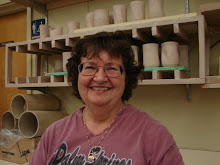Wednesday, March 08, 2006
(Why I Love This Field and the Tools Anyone Can Develop)
The very pragmatic field of intercultural communication began to develop from disparate disciplines as early as the late 1950's, informing very diverse arenas, such as international education, business, study abroad, Peace Corps training, and the Navy's race relations, among other areas.
Its emphasis for trainers and facilitators on creating atmospheres and environments conducive to facilitating change has always been on what works well, informed by experiential education and a well-researched body of knowledge which is broadly accessible (see website WAVELENGTHS inside my complete profile above.)
I have had the great honor, and years of fun and learning, working with and attending workshops of the Summer Institute for Intercultural Communication. From 1976 to 1986, some of the core staff and repeating participants were part of the prior Stanford Institute for Intercultural Communication, sponsored by Cliff Clarke and the late King Ming Young through the School of Education. ( Muchas Gracias a two of my earliest professional mentors.)
As an alumni of Stanford myself, it was home-coming and inspiring to go back to the campus for a few summer weeks, as I began a series of multicultural experiences and educational opportunities in a small rural community college further north. When the Institute moved to Oregon, near Portland, I was happy to return to my hometown in the summers for many moons and making dear friendships as well.
Everything I learned was applicable as we invented "Stanford on a Shoestring" back at my college, through consciously paying attention to intercultural theory/practice to create some very successful EOPS "Summer Bridge" programs, as well as international student activities.
Later, with other mentors and colleagues, I was privileged to be part of a many-year EOPS Statewide Student Leadership Program, seeing students grow like lilies with the assistance of diverse mentors, counselors and peer mentors.
The study and application of culture and communication can be further subdivided into culture-general principles, and culture-specific emphases.
For example, a culture-general principle is that folks are often not aware of their own culture around them, because it swirls like a fish all around them daily. Change the water and the fish will react!
A culture-specific emphasis in education and training might review knowledge, understand the values of, and even practice behaviors which would be viewed quite differently by someone from another culture.
For example, many people from Asian and other cultures don't touch the head of another's young child. In Thai culture, it is an insult to show the bottom of one's foot towards another; in Arab and Jewish cultures, pork products are shunned.
Knowing these things, as well as exploring our own cultural roots and influences, can make us all more effective and conscious communicators.
Intercultural communication focuses on individual interactions, and takes into active consideration the varying perceptions, values and behaviors of those communicating. While the terms in these dynamic fields are still fluid, "multicultural education" often includes another component, that of societal power and the influences of "isms" on interactions and the often disparate layers of society.
Both are critical, in my opinion and experiences, to help us all share resources and methods which work to create a more sane and respectful world.
SO, how about:
E-DISCUSSION QUESTION #2, open to everyone reading this:
When did you realize you were a "fish out of water"? (For me, it was probably as I moved from a small monocultural mill town in the Fifties on the Columbia River in Washington state, to a multicultural junior high in Santa Maria, CA).
Cultural shock, surprise, and new discoveries awaited me....how about you? What did you first learn or realize about being different? Do any lessons or "ahaha's" come from those experiences? Feel free to drop a line and share your ideas and resources!


0 Comments:
Post a Comment
<< Home